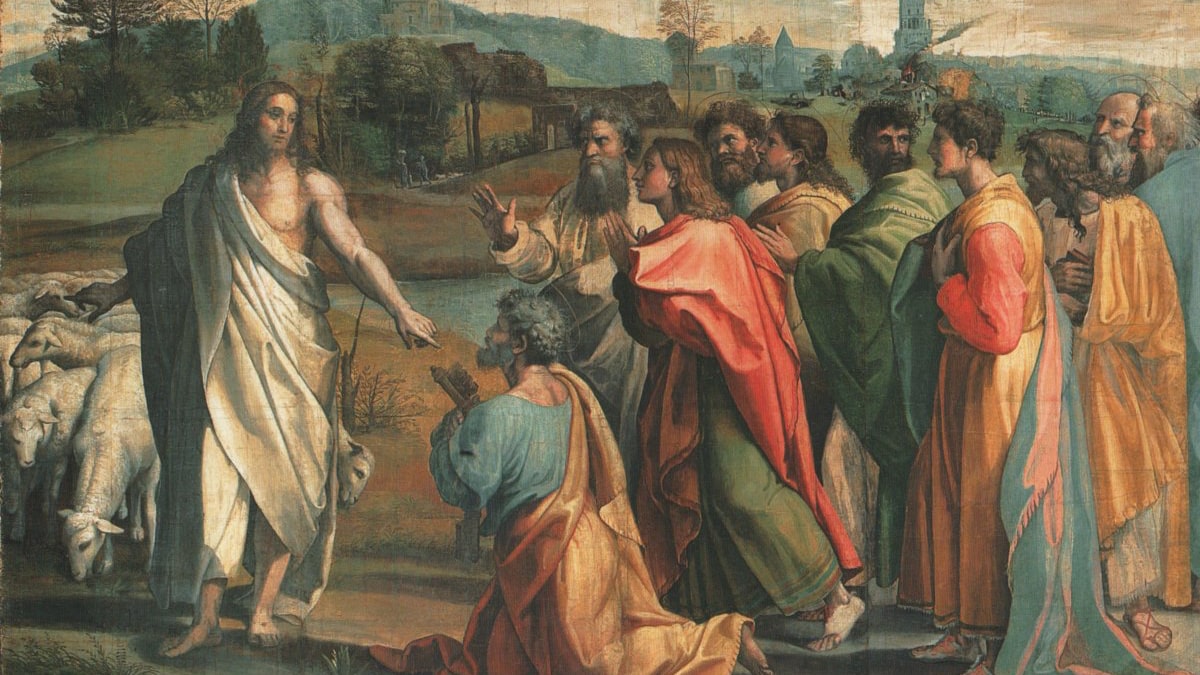
Homily for Sunday 22nd August
The opening collect or prayer from this Sunday's Mass makes a number of interesting observations and requests.
- God is called the one "who cause[s] the minds of the faithful to unite in a single purpose."
- He is then asked to first grant his people to love the things that He commands, and to desire the things that He promises;
- So that our hearts, in an uncertain world, may be fixed in the place of true gladness.
We are what we are not by our emotions, our feelings, our likes, and dislikes... but by our choices. (Death & Judgement, 15:05)
When we make choices, we express our will. We may not always feel like doing the right thing, we may not like doing the right thing - but when we choose to do the right thing, then we express the fact that that is what we really desire. Nevertheless, as the prayer points out, we need God's grace to be able to make that choice.
Joshua, the leader God had chosen to guide His wandering people in the Promised Land, after forty years of wandering in the wilderness, having settled them, gave them a stark choice: are you going to worship the gods of the Amorites, the gods of this place? Or, are you going to worship the Lord, the true God of Israel? The people answered enthusiastically - ‘We have no intention of deserting the Lord and serving other gods!' (Joshua 24.16). However, the history of the Hebrew people would prove to be, in many ways, a consistent story of backsliding and falling away from that commitment. In a fallen world, it is difficult to remain faithful to that commitment to a holy decision to follow God - we need his help.
A similar choice was put, as the Gospel recalls, to the disciples, when the crowds began to turn away from Jesus, unable to accept His teaching on the Eucharist. Those who had been so enthusiastic about following our Lord, when He was giving them what they wanted, left Him when His teaching began to challenge their worldview, their own understanding, the way they wanted to see reality. Jesus, left with His closest followers, puts the simple question to them:‘What about you, do you want to go away too?’ (John 6.67)
It is Simon Peter who answers for the twelve:
‘Lord, who shall we go to? You have the message of eternal life.’ (John 6.68)
The same question is put to you and to me, today. In a world where people are increasingly falling away from the authentic teaching of Jesus, finding it too hard, too much of a challenge to their world view, he asks you and me: do you want to go away too?
If we are slightly scared to answer, that is ok. It is a big question. Even St. Peter, after his inspired response to our Lord's question, would, when the big moment came, backslide, like His ancestors had done. He would deny our Lord three times on the night he was arrested. The saints know how hard it can be to choose for Jesus, and God knows it, too. Which is why we need God's grace to do it.
As our opening prayer acknowledged it is God who brings unity of purpose to the human mind and heart, and it is God who grants us the will to follow His commands and desire His promises - that our hearts may be fixed in heaven. And how does He do it? Through the channels of His grace which are the sacraments and prayer. Perhaps most specifically, through the sacraments of Confession and Holy Communion, and through the life of intimate, heart-to-heart prayer.
- In Confession, the wrong decisions we have made are healed. Indeed, we uproot those decisions by allowing God's grace, flowing from the Cross, to fill up those spaces in our souls.
- In Holy Communion, we renew our commitment to give ourselves to Jesus Christ. As He pours Himself out on the altar, we should come to meet Him with hearts running towards Him, eager to pour ourselves out for Him. We may not feel it, and we may not feel like it - but remember, our hearts are located where our will is - we should come to Him committing to choose His will wherever He makes it known to us, and trusting that He is giving us the grace of Himself to sustain us.
- Finally, in personal prayer we come alongside Jesus, as friend - and by spending time with Him we are changed, as indeed all the people with whom we spend time, change us. Slowly, but surely, if we spend meaningful time regularly with Christ, He will change our hearts and our minds, so that we do love His commands and desire His promises.
No comments:
Post a Comment